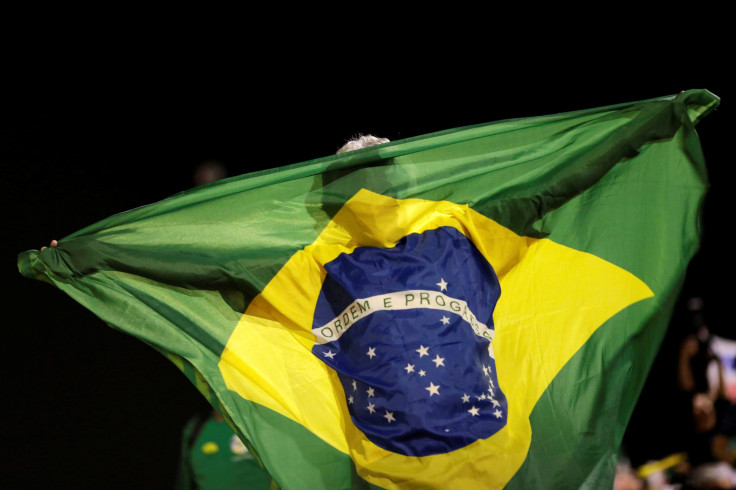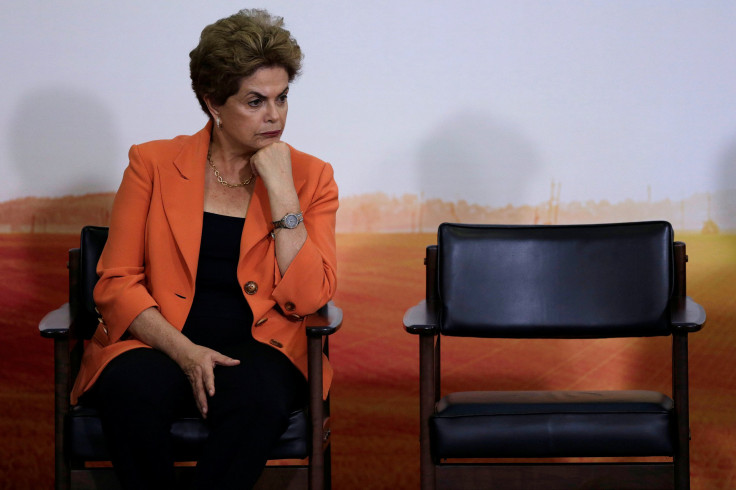Brazil Impeachment Crisis: 5 Things To Know About Proceedings Against President Dilma Rousseff

The political crisis in Brazil keeps taking unexpected twists and turns as the future of President Dilma Rousseff hangs in the balance. With less than 100 days until the Olympic Games in Rio de Janeiro and the world spotlight on Brazil, here’s a look at everything you need to know about the country's impeachment process and political and economic situation.
1. Is the impeachment still on? The impeachment process against Rousseff over breaking budgetary laws is back on track after the speaker of the lower house of Congress, Waldir Maranhao, reversed his decision to annul impeachment procedures Tuesday, Reuters reported. Maranhao did not give a reason for his U-turn after making the surprise announcement Monday that he wanted to annul the vote referring the impeachment to the Senate. His decision Monday sent Brazilian markets into a further spiral and sparked more protests.
2. What is the next step in the process? Brazil’s Senate is expected to vote Wednesday on whether to suspend Rousseff for as long as six months pending a potential trial on corruption allegations. If this takes place, Vice President Michel Temer would take over and run the government until, perhaps, November, when a Senate committee would examine Rousseff’s case. The entire Senate would vote on Rousseff’s case, and it would take a two-thirds majority to remove her from office.
3. When did the crisis begin? Allegations of corruption date back to the start of Rousseff’s first term in 2011. Brazil’s political elites have been accused of profiting from a kickback scheme involving state oil company Petrobras. Rousseff served as the chairwoman of Petrobras, but she has not been tied to profiting from kickbacks. The allegations against her stem from borrowing money from state financial institutions to cover up a growing deficit before the 2014 election. The proceedings began in December 2015, and the House voted to impeach in April. Brazil is entering its second year of recession.

4. Who are the key players? Besides Rousseff, the impeachment proceedings have also called former President Luis Inácio (Lula) da Silva into question. He has also been accused of corruption but has denied these claims. The former speaker of the House, Eduardo Cunha, initiated the proceedings, but was replaced by Maranhao last week because he is also being investigated for corruption.
5. What is happening to Brazil’s economy? The country’s political crisis is coming at a moment of economic decline for a nation that was seen in the 2000s as a rising economic powerhouse in Latin America. Brazil’s unemployment rate has reached double digits at 10.2 percent up from 7.4 percent a year earlier. The recession has hit the emerging middle class hard as inflation soars and wages stagnate or decrease. Following news Tuesday that the impeachment was back on track, Brazil’s currency fell by 4.6 percent before slightly rebounding.
© Copyright IBTimes 2024. All rights reserved.






















